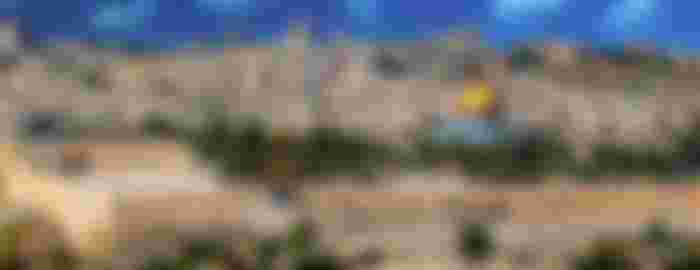
In her novel The Lights of Tel Aviv (ed. Rivages / Noir), published in March 2020, the journalist and writer Alexandra Schwartzbrod offers an original vision on the Israeli-Palestinian conflict by shifting the cursor to the near and rather disturbing future where The State of Israel would see itself cut in two, with the ultra-Orthodox on one side, and the “Resistance” returning to the original pioneering utopia on the other. Behind this captivating story, a question: beyond the “Israeli question”, will the world of tomorrow be secessionist?
A crowd of characters often linked to each other, friends or enemies, who flee by bus, on foot or by boat, and who often cross walls and checkpoints at the risk of their lives , pass through this book. A book that is as much a story of adventure and travel as a political novel. Which questions, from a look at the Israeli-Palestinian conflict, the foundations of a nation and the secessionist temptations that could reshape international borders tomorrow.
How does a country prepare to face external and internal changes, from the evolution of advanced technologies to the new global geopolitical situation linked to climate disruption and new migratory movements? From a reflection on a specific place that the journalist and novelist knows well - Alexandra Schwartzbrod was a long time correspondent for Liberation in Jerusalem -, we quickly move on to a universal questioning, the stake of which is the redistribution of the world of tomorrow.
The subject was obviously a puzzle, and it is in part because the characters are never stereotypical, never emblematic of one "camp" or another, that the novelist manages to make her book as much a thriller as it is. 'a reflective work.
It all begins with an act of defection and flight. Almost a desertion. That of Haïm, an intellectual close to the power installed in Jerusalem, who decides, after having stolen the plans of new ultra-sophisticated weapons of war, to join those which one calls the "Resistance", who laid the bases in Tel Aviv. 'a micro-state. Haim crosses a wall and, wounded, finds himself among this disparate community which brings together pacifist, secular or atheist Jews, Palestinians driven out of Greater Israel, all those who still dream of equality and tolerance and who have taken on their own. pioneer spirit of 1948, that of the kibbutz.
"And why wouldn't robots make good Jews?" "
Haïm leaves behind his wife, Ana, who had fled anti-Semitism in Istanbul to come and live in Jerusalem and who, for her part, is tired of her cramped daily life: "The more she prays, the more she serves her husband, the less she. finds meaning in his life ”. We still meet Isaac, an Orthodox close to the Prime Minister, secretly in love with Ana, who ultimately dreams only of emancipating herself, or even of being shameless. We also cut the road with two Palestinians trying to flee by sea, including the young Moussa, who grew up in a camp in a Christian family.
At the end of the 21st century, the ultra-Orthodox have seized power in Jerusalem, the capital of Greater Israel, with the help and support of Russian nationalists, and the holy city lives to the rhythm of Torah study: the military credits have even been reduced to free up more resources dedicated to its study. The West Bank was annexed, the Palestinians were driven to Jordan and Egypt - which reclaimed Gaza. The territory has been closed to Muslims and it is forbidden for women to go out with bare legs and arms, while four compulsory hours of study of sacred texts in schools have been instituted, as well as strict observance Shabbat rules.
The state has retreated into religion and intolerance. Prime Minister and Rabbi Arie Golan reigns as a tyrannical and corrupt master, almost laughable if it were not so filthy and dangerous stupidity, who imagines annihilating the rebellion thanks to combat drones supplied by the Russians, developing in the process an argument particularly twisted: " And why wouldn't robots make good Jews?" And they will be able to function during Shabbat since we will not have to activate them ”…
On the other side of the wall that separates the two entities, Tel Aviv appears as a modern city ruled by the “Resistance”, with its seafront, sun-kissed and prized by joggers. It welcomes utopians from all corners of the globe for the relaunch of a historical project close to the spirit of 1948, encompassing Jews and Palestinians, based on a certain faith in secularism, all in a future where Hamas self-dissolved. Admittedly, misery has not disappeared and, in this utopian Tel Aviv, people sometimes cram into community apartments.

It is Eli who takes care of the maintenance of order. A former Commissioner of Greater Israel, a Palestinian driven out like his compatriots when the radicals took power. Long exiled in France, he then felt " an irrepressible desire to find his country, its brutality, its madmen ".
The Resistance fighters are not armed - " for fire calls for fire ", they say - until the day when, faced with the threat from Greater Israel, they will resolve to obtain what to defend themselves. And the cynicism is finally shared since the leader of the Resistance fighters, Laszlo Tsedek, imagines buying weapons in the United Arab Emirates by exchanging them for women, for lack of money ... Eli will then approach Haim to thwart both the plans of the enemy and those of the leader of the Resistance fighters.
"Suffering, like the earth, must be shared"
A novel of great acuity, illuminating fiction escaping visionary or predictive ambition, The Lights of Tel Aviv is content to show how the obsessive question of the invention of an "internal enemy" betrays the evolution of a world policy which must urgently rethink its social contract and the relations between the population and its leaders. Where the solution of appealing to the "pioneer spirit of 1948" and the "founding fathers" appears as a backward-looking method, ultimately ineffective and possibly perverse - in fact, among the Resistance fighters, children are taken from their parents and entrusted to a " group of life ”, under the pretext of freeing up adults' time and because all neuroses come from parent-child relationships ...
A dystopian element which also underlines the difficulty and the danger of these political projects which prefer to ogle the side of the dreams of yesteryear, outdated and pernicious, rather than betting on the descent, on the inventiveness of new generations. Alexandra Schwartzbrod reveals here, with great finesse, the danger of a society in which any approach would consist in cutting ties, in the name of a sentence that remains to be considered: " Suffering, like the earth, must be shared ".

